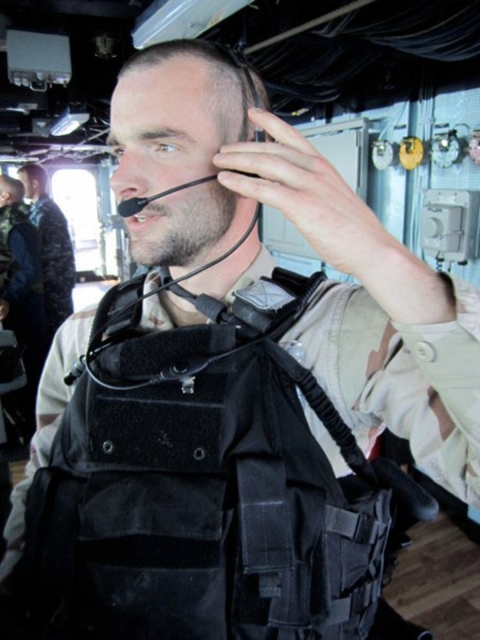Blogger’s note: People power conservation and veterans are some of the strongest people out there. On this special veteran’s edition of our profile series, we are shining a spotlight on one of the many dedicated U.S. Fish & Wildlife Service employees that has served to protect both wildlife and the land we all call home. Scott Bowles, a former Naval Officer and a business operations officer in our Portland Regional Office, is new to the Service but no stranger to serving the American public. Here is his story.
How did you become interested in a career in conservation?
I grew up in Northern California fishing and hunting with my family. I feel like this career connects me to nature and nature is at the core of who I am and what I love. This career is an opportunity for me to help protect what I care about – I can’t think of any other area in the government in which I would be more excited to work. The people I work with are also equally as passionate about and invested in the Service’s conservation mission which makes for a dynamic workplace culture.
How did you find your way to the U.S. Fish and Wildlife Service after seven years of working for the Navy?
After a few years of less-than-fulfilling work in corporate sales, I started working for the U.S. Department of Health and Human Services and, although the work was important and helped me gain experience in the budget world, I wasn’t as connected to the mission as I wanted to be. When an opening came to work for the U.S. Fish and Wildlife Service, I couldn’t wait to apply. Getting this job was an awesome opportunity to do meaningful work and my wife and I packed up our three kids and moved from Utah to Oregon to start a new chapter in our life.
Tell us about your job — what do you do at the Portland Regional Office?
I am the Business Operations Officer for the Pacific Region’s ecological service program. Essentially, my job is making sure that the administrative and budget processes in the Pacific Region are executed properly and efficiently. We work on listing and delisting species, funding, managing, and starting conservation projects in the field offices in Oregon, Idaho, Washington, Hawaii, and the Pacific Islands.
What’s your favorite thing about working for Service?
I love knowing that the work I do translates to conservation. Even though I work with spreadsheets and data, the numbers are driven by conservation and dedicated on-the-ground work by our scientists. I am also fortunate to be surrounded by wonderful people. I have found my colleagues in the U.S. Fish and Wildlife Service to be dedicated, motivated, and contagiously passionate!
How does being a veteran factor into your work with the Service?
I had the opportunity to supervise and work for a large and diverse workforce in the Navy. This has helped me be a better employee and supervisor and given me exposure to lots of different people and ideas. Many of the soft skills have been quite transferable between the military and the Fish and Wildlife Service.
Where is your favorite place in nature to hang out? Why?
With my family salmon fishing somewhere not too crowded while they are biting. Being on the water anywhere in the summer or hunting in the fall! Surfing, playing in the ocean lots of outdoor time with three active kids.
What advice do you have for other veterans interested in a career someone interested in a career in conservation?
Go for it! Especially for those interested in the outdoors, working for the U.S. Fish and Wildlife Service can provide meaningful work even if you are peripherally involved in the conservation mission. Just knowing that some of the projects we process are on rivers I fish in my free time is very cool!
Join us in thanking our veterans by checking out more of their stories here.




